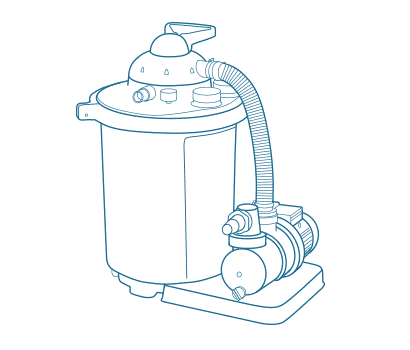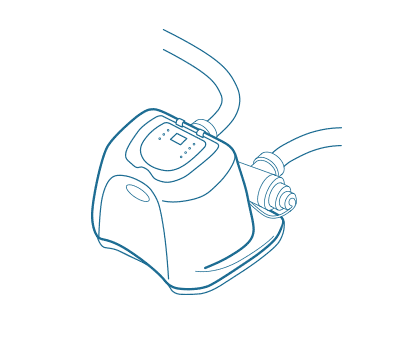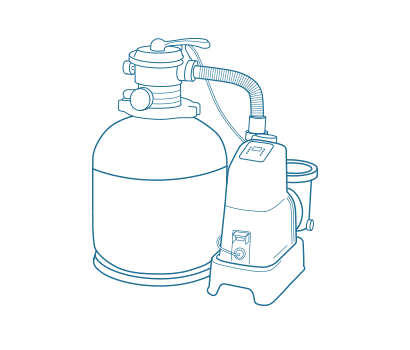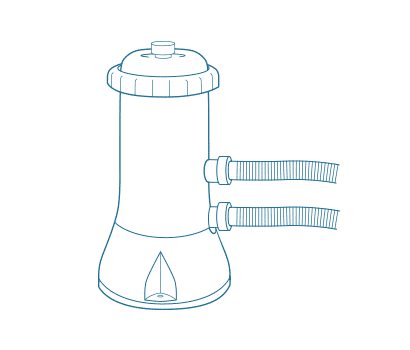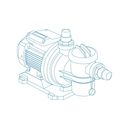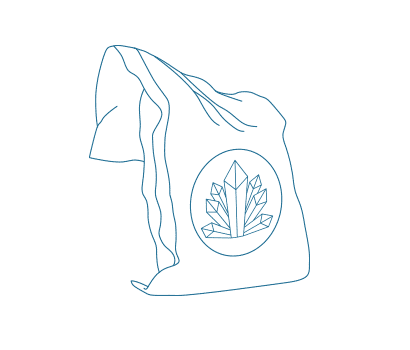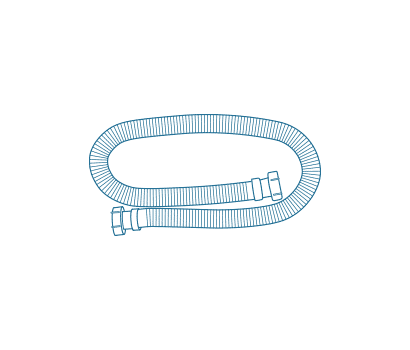Filter Systems for Pools
Find the right filter system for your pool here. Choose from a sand filter system, cartridge filter system, sand filter pump and accessories: we have everything you need for crystal clear water in your pool!
Shop by category.
Filter Systems: 1 - 30 of 112 items
-
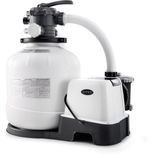
Intex Sand Filter Pump Krystal Clear 8m³ with Salt Water System, 1 item
- Max. pool volume: 56,800 litres
- Circulation capacity: 8,000 L/h | 8 m3/h
- With pre-filter & timer
-
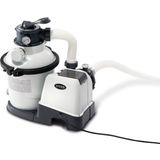
Intex Sand Filter System Krystal Clear 4m³, 1 item
- Max. pool volume: 29,100 litres
- Circulation capacity: up to 4,000 L/h | 4 m³/h
- With timer
-
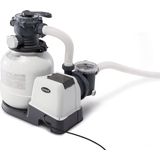
Intex Sand Filter System Krystal Clear 6m³, 1 item
- Max. pool volume: 37,800 litres
- Circulation capacity: 4,700 L/h | 4.7 m³/h
- With pre-filter & timer
-
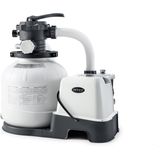
Intex Sand Filter Pump Krystal Clear 6m³ with Salt Water System, 1 item
- Max. pool volume: 32,200 litres
- Circulation capacity: 6,000 L/h | 6 m3/h
- With pre-filter & timer
-
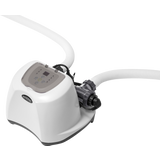
Intex Krystal Clear Salt Water System QS1200
- For pools up to 56.8 m³ | 56,800 litres
- Required amount of salt: 3 kg/m³
- Min. filter pump capacity: 2,650 L/h
-
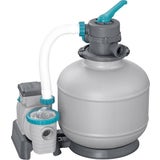
Bestway Sand Filter System with Timer 8,327L/2,200gal
- High filtration performance
- With sand or filter balls
- For pools up to 51,400 liters
-
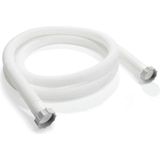
Intex Swimming Pool Hose Ø 38mm with Union Nut 4.5m, 1 Piece
- Fixed length: 450cm
- Chlorine and UV resistant
- Screw connection on both sides
-
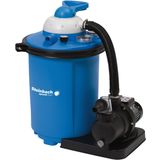
Steinbach Speed Clean Comfort 75 Sand Filter System, 1 unit with 7,800 l/h circulation capacity
- Max. pool volume: 40,000 litres
- Circulation capacity: 7,800 L/h | 7.8 m3/h
- With self-priming pump and timer
-
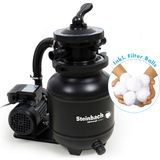
Steinbach Speed Clean Active Balls Filter System
- Filter performance: 4.1 m³/h
- Pump output: 4.5 m³/h
- For pools up to 19m³
-
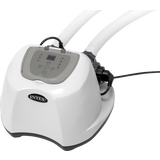
-
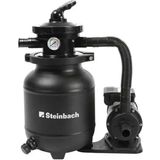
Steinbach Sand Filter System Speed Clean Classic 250N, 1 Piece
- Max. pool volume: 19,000 L
- Circulation capacity: 4,170 L/h | 4.1 m3/h
- With pressure gauge
-
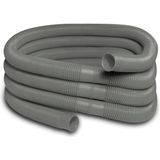
Steinbach Swimming Pool Hose, Lugged, Ø 32mm, 6.60m
- Ø 32mm
- Highly flexible
- Chlorine and UV resistant
-
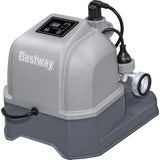
Bestway Hydrogenic 12 g/h Saltwater System
- Converts salt to chlorine
- Practical control panel
- Automatic self-cleaning function
-
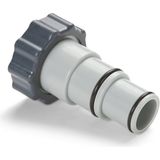
Intex Adapter for Intex pools Ø 32/38mm x 2" IG, Adapter for Intex Pools Ø 32/38mm x 2" IG (Internal thread)
- Ø 32/38mm on 2" internal thread
- Perfect transition
- Strong hold
-
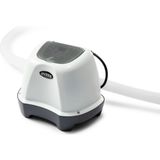
Intex Krystal Clear Salt Water System 17,400L
- For pools up to 17.4m³
- 24-hour timer
- For 32 mm hose connection fittings
-
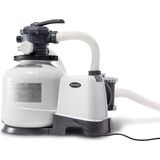
Intex Sand Filter System Krystal Clear 8 m³, 1 item
- Max. pool volume: 57,500 litres
- Circulation capacity: up to 8,000 L/h | 8 m³/h
- With pre-filter & timer
-
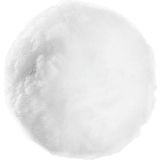
Steinbach Filter Balls, 700 g
- Large Filter Surface
- High Dirt Absorption Capacity
- Less Backwashing Processes
-
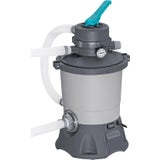
Bestway Sand Filter System 3,028 L / 800 gal
- High filtration performance
- With sand or filter balls
- For pools up to 16,600 liters
-
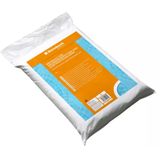
Steinbach Sea Salt, 25 kg
- An alternative to chlorine
- High-quality natural product
- Protects against bacteria
-
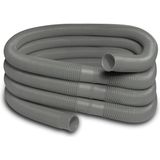
Steinbach Swimming Pool Hose, Lugged, Ø 38mm, Fixed length: 9m
- Ø 38mm
- Highly flexible
- Chlorine and UV resistant
-
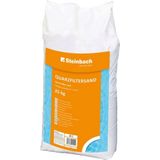
Steinbach Quartz Filter Sand 0.7 - 1.2mm, 25 kg
- Filters the smallest dirt particles
- Ensures clear water
- Grain size 0.7 - 1.2mm
-
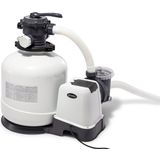
Intex Sand Filter System Krystal Clear 9.2 m³
- Max. pool volume: 66,600 litres
- Circulation capacity: 9,200 L/h | 9.2 m³/h
- With pre-filter & timer
-
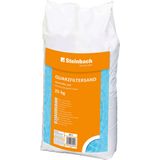
Steinbach Quartz Filter Sand 0.4 - 0.8mm, 25 kg
- Washed quartz sand
- High filter fineness
- Captures dirt particles
-
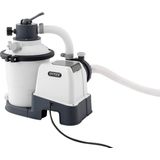
Intex Sand Filter System Krystal Clear 2m³
- Max. pool volume: 16,800 litres
- Circulation capacity: 2,000 L/h | 2 m³/h
- With timer
-
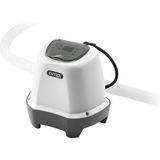
Intex Krystal Clear Saltwater System QS200
- For pools up to 8.3m³
- 3 self-cleaning modes available
- With timer
-
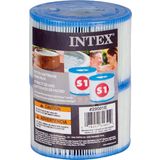
Intex Whirlpool Filter Cartridge Type S1, 1 item
- Filters the smallest impurities
- Suitable for whirlpools of the Pure Spa series
- Spare part
-
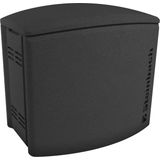
-
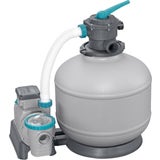
Bestway Sand Filter System with Timer 11,355 L/3,000 gal
- High filtration performance
- With sand or filter balls
- For pools up to 60,500 liters
-
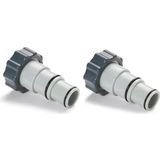
Intex Adapter A (Pack of 2), 1 Set (2 items)
- Ø 32 / 38 mm to 2" internal thread
- For Intex products
- Resistant to chlorine and salt water
-
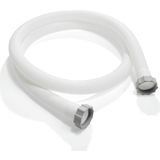
Intex Swimming Pool Hose Ø 38mm with Union Nut 3.0m, 1 Piece
- Fixed length: 300cm
- Chlorine and UV resistant
- Screw connection on both sides
Why do you need a pool filter system? How are the models different? What are the advantages and disadvantages? Read on to find answers to these questions.
Filter systems for pools are not just for clear water
Filter systems in pools should of course ensure visibly clean water. Pool water flows through the filter pump and then the filter container. In the filter container there is a filter medium which absorbs coarse and fine dirt . The cleaned water comes back into the pool and this ensures that the pool looks very clean.
But it's not just about appearance, it's also about making it a hostile habitat for microorganisms such as bacteria, viruses, algae and fungi or even physically removing them from the pool water entirely. Since some microorganisms can pose a health hazard in sufficient numbers, fighting them is important for keeping pool water healthy.
Why not just flood the pool with chlorine and be done with it?
In fact, this is sometimes done in the case of smaller paddling pools. Some people add comparatively high amounts of chlorine in the form of chlorine tablets or chlorine granules and this keeps the non-circulating water clean and usable for a while. However, you have to use a lot of chlorine per litre of water and the effects last for a few days as opposed to 3 to 6 months. A pool filter system is also needed to distribute chlorine and pH reducers evenly. While you can "stir" in the added pool chemicals by hand in a small paddling pool, this is unlikely to be successful in a frame pool with several thousand litres of water, for example - especially when it comes to regular and long-term use. You also need considerably less chlorine if organic substances (which serve microorganisms as food and habitat) are collected in the filter medium and the chlorine takes effect there. Chlorine works with maximum efficiency in the filter container because it is always dark in there and therefore no UV rays which break down chlorine and render it ineffective This is important because UV rays break down chlorine and render it ineffective. This also applies to sodium hypochlorite, which is used in saltwater pools.
The pool filter system keeps the water moving - do not underestimate this factor!
We generally recommend relatively long running times when asked how long a filter system should run. It's not just about filtering out as much dirt and debris as possible from the pool water, but also about keeping the water moving. First of all, this brings chlorine from deeper water layers to the surface which is very important in midsummer. Since the sun is high in the sky in the summer months, more UV rays get through the atmosphere, and as we know, UV rays break down chlorine. If chlorine were not constantly transported from the lower water layers back to higher layers by mixing the water with a pool filter system, there would be a roughly 40-80cm zone in which hardly any disinfection would take place. But that's not all.
Standing water = paradise for bacteria
Let's suppose that the pool water temperature is 29°C in the middle of summer - there will be no chlorine left in the upper water layers due to the incoming UV radiation. In such a situation, bacteria need only one thing to multiply like crazy: standing water! In fact, many microorganisms can multiply only very slowly, if at all, in moving water. But, if you don't do something about it, things will only get worse.
Some bacteria double in numbers in 15-20 minutes under "optimal" conditions. In the worst case, one bacterium can become a trillion (!!!) in just 13.5 hours. It is important to keep the water moving at least around noon and in the early afternoon to inhibit the growth of microorganisms.
What makes a good pool filter system?
Pool filters can differ drastically. As a general rule of thumb, a pool filter system should be able to circulate the water in a pool once in a maximum of five hours. Use this formula to ensure that the pump has enough power to move and mix the water sufficiently. Because mixing is also an important factor: Weak pumps are unable to distribute disinfectant sufficiently and filter only the water around the inlets and outlets over and over again instead of also filtering the water from further away in the pool sufficiently. That is what makes the pressure of a pool filter system so important - it pushes fresh, filtered water back and pulls unfiltered water towards the pool outlet by the displacement effect.
A pool filter system is only as good as its filter medium. You can choose any filter medium you like such as sand, filter cartridges, filter balls and more. However, attention should be paid to their individual properties for efficient filtering to take place. In the worst case, the filtration effect can collapse or the filter media can get contaminated and the pool filter system can become a source of spreading germs instead of doing the opposite.
Cartridge system or sand filter?
The question often arises: which pool filter system should it be? The most important factor no matter what of type of filter you choose is that it must be strong enough. Then you can choose a suitable model.
Cartridge filter systems have a bad reputation due to the fact that they are usually included in various sets by the manufacturer for reasons of cost, and are usually completely undersized. But not because they are generally unsuitable for their job. Likewise, sometimes their paper filters do not fit the filter housings correctly which means approximately 5-10% (depending on the model) of the water flowing through is not filtered. But paper filters are extremely fine and filter very small particles out of the water which sand or filter glass cannot do. Filter cartridge systems are also very cheap and usually quite energy-efficient in terms of flow rate. The disadvantage is that replacement filter cartridges have to be bought over the course of the season - this puts the cost advantage into perspective a little.
In short: If your budget is limited, cartridge filter systems are certainly a good option. We recommend a slightly higher ratio of pool volume to pump capacity of four to one for cartridge filter pumps. For example, if a pool has a water volume of 12m², the corresponding cartridge filter system should have a minimum capacity of 3m³ per hour - net.
Gross vs net: What to keep an eye on when evaluating the performance of a pool filter system
Manufacturers provide two performance specifications: the gross pump performance per hour and the net filter performance per hour. The gross pump performance does not take into account height differences and also applies in the event that no filter medium is in use. In practice, the gross value is completely irrelevant in most situations. Good for advertising, but useless when it comes to how a pool filter system works under real life conditions. What you need is the flow performance that takes into account the filter media. A height difference of roughly 50-70cm should also be taken into account, which is completely normal for above-ground pools. The pump is on the ground and the pool inlet is increased by this value for most pools. This in turn takes into account the net performance. Use this net value as a guide to assess a pool filter system.
Is a sand filter system the best filter system for a pool?
Provided the sand filter has enough net capacity, it can be a very good choice. You can use sand or filter balls as filter media here. All of these filter media are good options - our guide section ha more details. If you want to keep your chlorine requirement as low as possible, use a combination of sand and flocculant. This combination filters out the maximum number of particles from the water and these fparticles can be permanently removed from the pool water cycle by means of backwashing. This can significantly reduce the need for chlorine. But flocculants only work well with a very good setup configuration. If the tank of your sand filter is not very large in relation to the pump, filter balls are often the better choice in practice.
? Tip: In the guide Which sand filter is the right one for my pool? we will discuss sand filter systems in more detail.

